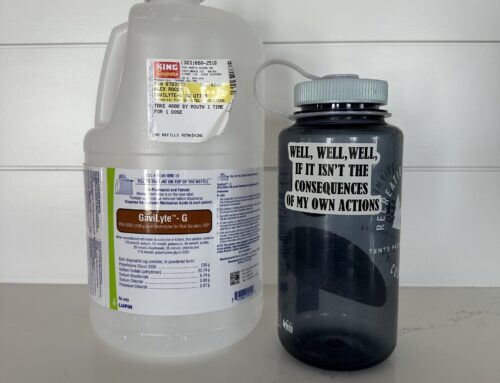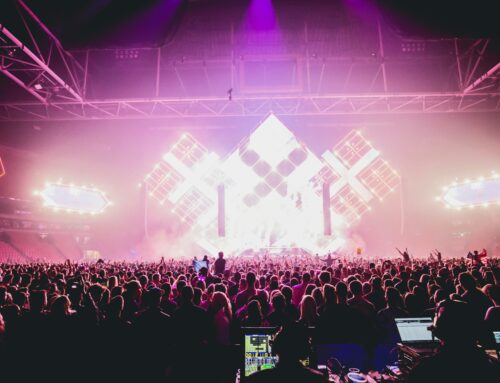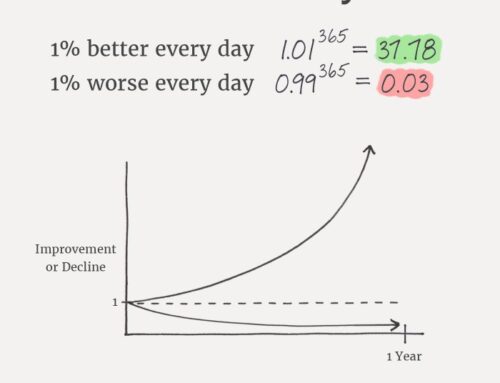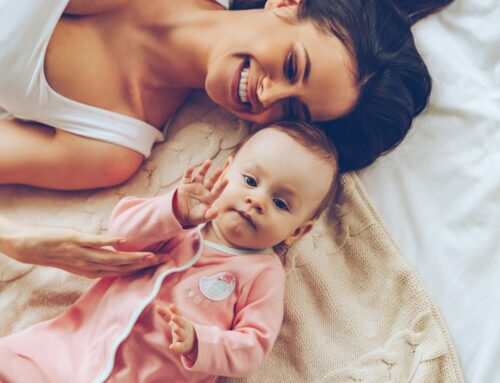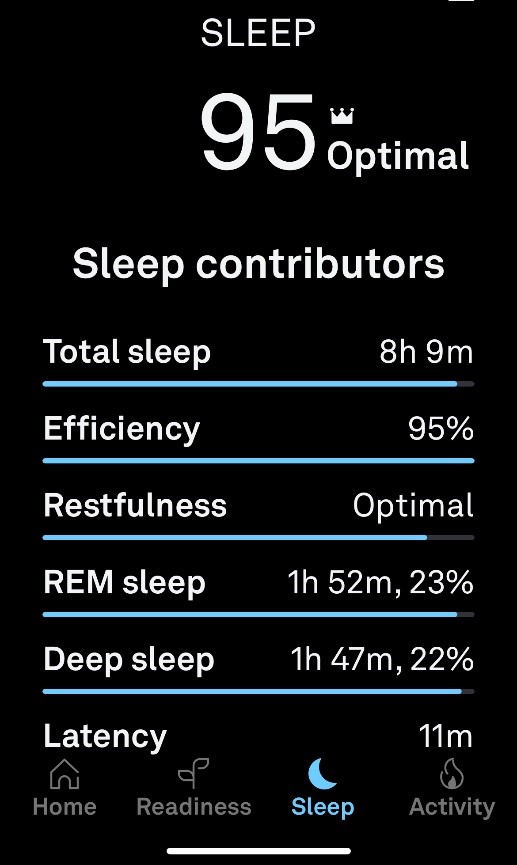
TN50#8, Sleep Matters, 22 February 2021
Hi Team,
Happy Monday and welcome to the 8th Monday – Funday.
What’s your Sleep Score?
I help people improve their performance by initially focusing on the 3 basic pillars: EAT – SLEEP – MOVE. I learned a lot of my basics by making 1000’s of mistakes in all 3 domains. Back in my commando days I ranked these 3 as follows in importance: 1. MOVE, by far, 2. EAT, meaning eat everything, 3. SLEEP, which was a very distant 3rd. Back in the early 2000’s sleep hygiene was getting back in the blacked-out room before the sun came up for a day of sleep, but hey you have to start somewhere. My clients are generally aligned with sleep being 3rd place for focus and the OURA ring they start wearing gives us a daily score and loads of other specific information as we seek improvements.
If you are also of the opinion that sleep isn’t that important; I recommend you begin your new education on sleep here:
https://peterattiamd.com/matthewwalker1/
https://peterattiamd.com/matthewwalker2/
https://peterattiamd.com/matthewwalker3/
These are links to The Drive podcast with Matt Walker and the interview is broken down into a 3-part series. These 3 episodes will open your eyes to the last few decades of high-quality Sleep research and give you the real-world application for the information.
Sleep Tracking!
I personally started wearing an OURA ring back in late 2018, I chose an OURA ring mainly for tracking Sleep and Recovery after failing to fall in love with some watch style wearables. I have found the OURA ring to be useful because I don’t mind wearing it like I do a watch, it keeps a charge for at least 5 days and I like the robust information it provides on SLEEP and RECOVERY. Data like average HRV, Lowest Resting HR, Respiration Rate along with the information it extrapolates with its proprietary algorithms to estimate REM and Deep Sleep and overall scores from 1 – 100 for general Sleep and Recovery. One of OURA’s tag lines is, “Your health journey starts with sleep and a ring”, I whole heartedly agree.
Back on January 10th of 2021 I scored the best Sleep Score of the last 2.25 years – a 95. One positive of CV19 and working from home is my Sleep Score average has moved up from the mid 70’s to low 80’s, I occasionally see a 90 or 91 but never a 95.
The first screen capture from my OURA app with some numbers that go into the algorithm for the overall Sleep score of 95. Total Sleep is what the ring assessed for my time being asleep, my total time in bed for the night was 8h 33m. Latency is the time it takes to go to sleep; the ring likes when it takes you between 5 and 15 minutes to doze off so I was right in the sweet spot (my Latency numbers are usually less than 5 minutes, that number is often red). Time in bed minus total sleep time and latency leaves 13 minutes of awake time that the ring assessed throughout the night and morning. The Efficiency score of 95% reflects the solid 8 hours plus of actual sleep and the minimal awake time total of 24 minutes over the total time in bed of 8h 33m. The ring likes for REM and Deep sleep to be 20 – 25% of your total sleep time so I was right in the sweet spot for those numbers as well, with the ring giving me 1h 52 minutes of REM and 1h 47m of Deep sleep.
This second screen capture shows my HR for the night. The ring seems to like when I have an average HR in the 40’s and lowest in the 40’s vs. having an average in the 50’s with a lowest in the 40’s. The “Lowest” number is the lowest HR the ring capture lasting at least 10 minutes over the night of sleep. On this night you can see a very consistent HR over the entire night of sleep. The only time I have ever scored a “Lowest” HR in the high 30’s is during a 5-Day fast mimicking-diet, on the later days when my body is really doing everything it can to conserve energy.
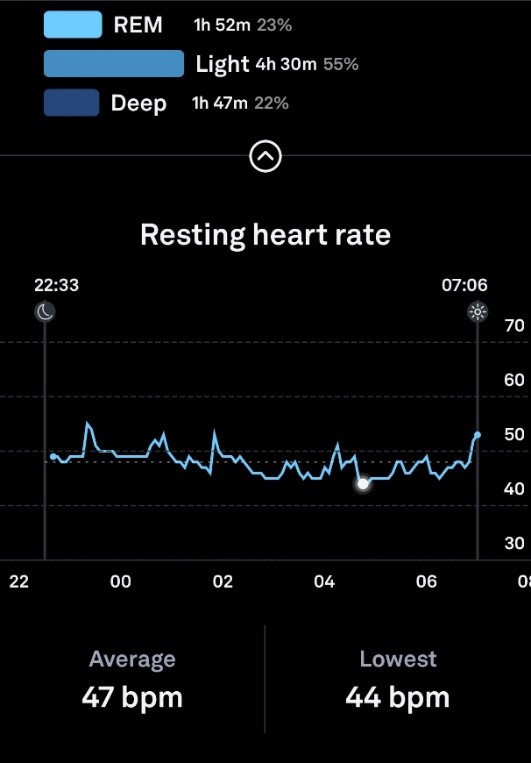
So what did I do to get a 95 Sleep Score?
As luck would have it, I have my journal from 9 January 2021 to fill in the “WHY” for this score. 9 January 2021 was a Saturday and I took the kids skiing up at Loveland, so from an activity standpoint I burnt a lot of energy on the mountain at a higher altitude than where we live at 6,200 ft. We were on the mountain early which means I also started my Food Clock (FC) later than normal, My FC started at 1420, this was a Quest bar and some macadamia nuts once we were back in the SUV on the way down the mountain. Dinner was pork roast and veggies at 1915. I was still hungry so I had a protein shake for dessert which pushed my FC end to 2020. FC total for the day = 6 hours, and the last calories being liquid definitely helped me get all the digestion requirement basically handled before sleep onset at 2233. The other obvious plus I can see in the log is I didn’t have a lovely IPA with that pork roast, no alcohol is a no brainer when it comes to a good sleep score.
To summarize the day: Lots of physical activity, a very short Food Clock, mid to high quality food choices, no alcohol, low stress, super low electronics, lots of fun and a bit of luck on not getting woken up before 0706 on a Sunday morning, bam!
Do you prioritize sleep? Have you built any systems around sleep hygiene (remember you can even find information on sleep hygiene on the CDC website!) for optimizing the quality of your sleep? Have you ever used a tracking devise (Fitbit, apple watch, et cetera) to get an objective look at how you are sleeping? If the answer to these questions is “no” and you would subjectively rate your sleep as poor you have to fix this now. You owe it to yourself and those close to you.
Not sure how to start? Reply to this email and I’ll give you a 15-minute crash course on my SLEEP Basics.
As always let me know what you think and please share this with anyone who needs it.
Have a good one, Alex
